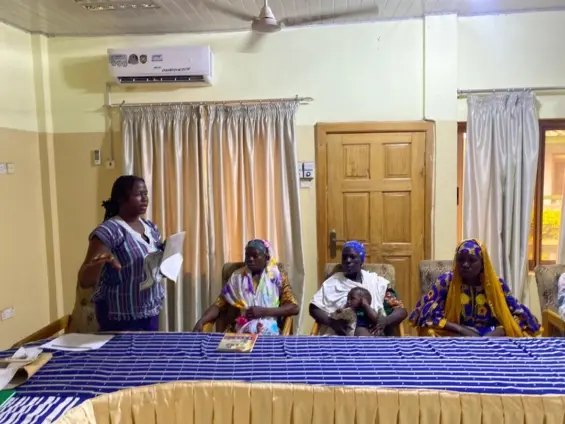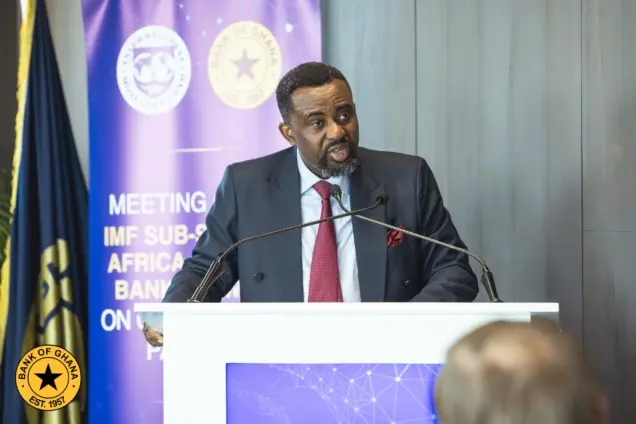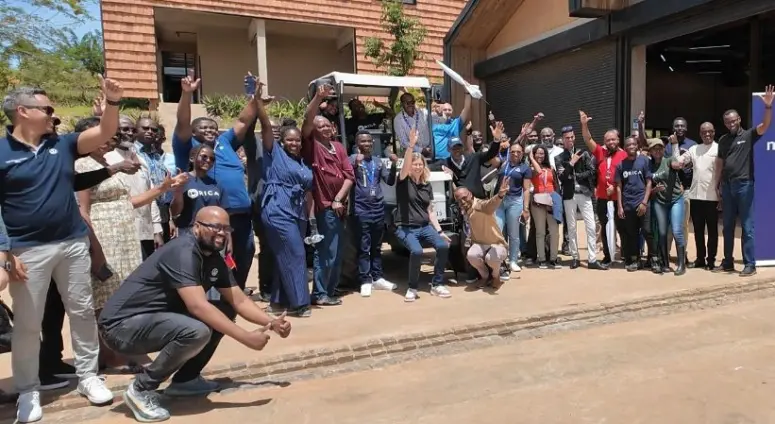In the bustling markets and verdant fields of Ghana, women form the backbone of the informal sector, driving economic activity with their tireless efforts. Yet, these women, particularly farmers and market traders, often find themselves excluded from the very financial and social safety nets that could empower them. Imagine Ama, a cocoa farmer in the Ashanti region, struggling to secure a small loan to invest in better farming equipment. Or Yaa, a market trader in Kumasi, worrying about healthcare costs for her children. These are the everyday realities that the ‘Action for Voice and Inclusive Development (AVID II)’ Project, led by the Centre for Social Justice (CSJ) and supported by STAR Ghana Foundation, is determined to change. This initiative aims to empower women farmers in Ghana by enhancing financial accessibility and social security, driving economic equity and resilience in Ghana’s informal sector.
Ghana’s informal sector is a powerhouse, employing a significant portion of the population. A staggering 92% of employed individuals in this sector are women, underscoring their vital contribution. However, this disproportionate representation is not matched by equitable access to financial services. A recent study highlighted a significant deficiency in the accessibility, quality, and usage of financial services and products among informal sector workers, who constitute 65.3% of the labor force. Furthermore, enrollment in Ghana’s National Health Insurance Scheme (NHIS) among these workers remains low, with only about a third of total enrollees annually, exposing them to considerable vulnerabilities.
The AVID II project is designed to bridge this critical gap. The Centre for Social Justice (CSJ), in collaboration with STAR Ghana Foundation, has launched this second phase with a clear vision: to create inclusive, practical solutions through comprehensive stakeholder engagement and strategic policy reforms. The project involves conducting stakeholder engagements with market women in Kumasi and women in agriculture in the Northern Region to gain a deep understanding of their specific challenges in accessing credit and social insurance. A crucial component is a baseline assessment, gathering firsthand accounts from informal workers – both market traders and peasant farmers – about the financial and social protection barriers they encounter.
“These engagements are vital in amplifying the voices of women in the informal economy,” said a CSJ Spokesperson. “Our goal is to ensure that inclusive policies are not just discussed in boardrooms, but are shaped by the lived realities of those who need them most.”
The cornerstone of the AVID II project is the development of a ‘Policy Action Platform (PAP).’ This platform will serve as a collaborative space, bringing together government agencies, financial institutions, and grassroots representatives. The aim is to co-create and commit to sustainable, context-appropriate solutions that directly address the needs of women farmers in Ghana.
The anticipated impact of the AVID II project on women farmers is substantial. By facilitating access to microcredit, the project empowers women to invest in their farms, purchase necessary equipment, and ultimately increase their productivity. Furthermore, expanding social insurance coverage provides a crucial safety net, reducing their economic vulnerabilities in times of hardship or unforeseen circumstances. Ultimately, the project seeks to mitigate the economic vulnerabilities prevalent in Ghana’s informal sector, particularly for women, through targeted financial and social protection initiatives.
In the coming months, the CSJ-led AVID II project, with support from partners like STAR Ghana Foundation and The William and Flora Hewlett Foundation, will roll out a series of regional and national dialogue platforms. These platforms are designed to catalyze significant reforms that enhance both financial inclusion and social insurance coverage for women farmers and other informal workers. By addressing their specific needs and challenges, the project aims to build the resilience of Ghana’s informal workforce, ensuring they are better equipped to navigate economic uncertainties.
The AVID II project represents a vital step towards truly empowering women farmers in Ghana. By tackling the systemic barriers that hinder their access to credit and social protection, and by amplifying their voices in the policy-making process, this initiative has the potential to create a more inclusive and equitable financial landscape. The success of this project will not only improve the livelihoods of countless women but also contribute significantly to the overall economic resilience of Ghana’s informal sector, fostering social justice and economic equity for all. It is crucial to support and champion these efforts, ensuring that Ghanaian women farmers receive the opportunities and protections they rightfully deserve, enabling them to thrive and contribute even more to the nation’s prosperity.
Image Source: MYJOYONLINE





















